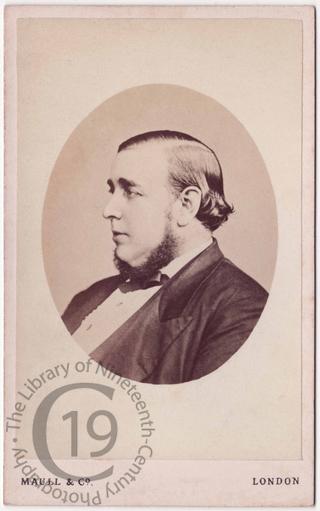
The Tichborne Claimant
A carte-de-visite portrait of the ‘Tichborne Claimant.’
In 1871, a trial lasting 102 days galvanized the British press and held the public enthralled.
A man claiming to be Sir Roger Tichborne, who had been lost at sea in 1854, had arrived in England from Australia, where he claimed he had been working as a butcher in Wagga Wagga under the name of Tom Castro. He was, in fact, one Arthur Orton, and bore little resemblance to the real Sir Roger, nor did he speak a word of French, which the real baronet had spoken fluently. Neither of these facts stopped Sir Roger’s mother from immediately recognizing Orton as her long-lost child, so desperate was she to find her son again, nor from giving the impostor an allowance of £1000 a year. The other members of the family were not so easily convinced, and a trial ensued. In spite of 100 supporters who vouched for his claims, Orton’s case eventually collapsed at the end of a twenty-two day cross-examination. He was immediately tried for perjury, of which he was found guilty in 1874, and sentenced to 14 years of hard labour, of which he served ten. Released in 1884, he died in poverty in 1898, spending the last years of his life alternating between confessions and claims of innocence. He was buried in a pauper's grave in Paddington Cemetery. His coffin bore the name ‘Sir Roger Charles Doughty Tichborne.’
Photographed by Maull and Co of London.
Code: 125323




